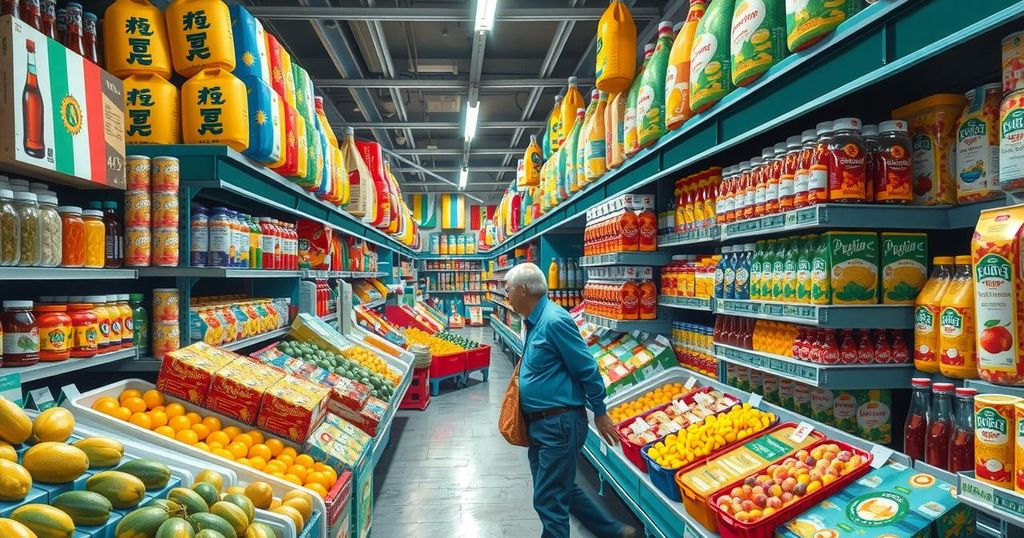Nigerians spent N21.51 trillion on imports in the past four years, maintaining high dependency on foreign goods. Food imports cost N6.77 trillion, while live animals and products totaled N3.64 trillion. Other categories, such as textiles and plastics, also showed alarming increases, reflecting challenges in boosting local production efforts.
In a comprehensive report from the National Bureau of Statistics, it was revealed that Nigerians spent a staggering N21.51 trillion on imports over the last four years, signifying a persisting reliance on foreign goods notwithstanding efforts to enhance local production. A considerable portion of this expenditure, amounting to N6.77 trillion, was allocated to the importation of prepared foodstuffs, beverages, spirits, vinegar, and tobacco, witnessing a progressive increase from N594.08 billion in 2020 to N2.79 trillion in 2024.
The importation of live animals and animal products also saw a significant rise, totaling N3.64 trillion throughout the four-year span. Expenditures started at N454.52 billion in 2020, slightly fluctuating over the next years before culminatively reaching N1.49 trillion in 2024. Other categories, including footwear, headgear, umbrellas, and sunshades, recorded a total of N167 billion, reflecting consistent growth from N23 billion in 2020 to N65 billion in 2024.
Plastic, rubber, and related products constituted the most substantial category of imports, with an expenditure of N7.72 trillion. Initial spending was N609 billion in 2020, surging to N3.46 trillion by 2024. In contrast, imports of textiles, where Nigeria once held a competitive edge, recorded N1.93 trillion, increasing substantially from N183 billion in 2020 to N726 billion in 2024.
The country additionally spent N909 billion on wood and wood-related products, with imports rising from N52 billion in 2020 to N517 billion in 2024. Furthermore, the importation of raw hides, skins, leather, and saddlery products totaled N373 billion, showcasing progressive spending from N30 billion in 2020 to N157 billion in 2024. These statistics underscore Nigeria’s ongoing dependence on imports despite various initiatives meant to stimulate domestic production.
The data presented illustrates Nigeria’s significant dependence on imported goods, with total expenditures reaching N21.51 trillion over four years. Key categories such as foodstuffs, live animals, plastics, and textiles consistently saw increasing import costs, highlighting the challenges faced by local production initiatives. Without substantial enhancements in domestic manufacturing, Nigeria may continue to face considerable trade imbalances in the future.
Original Source: punchng.com






